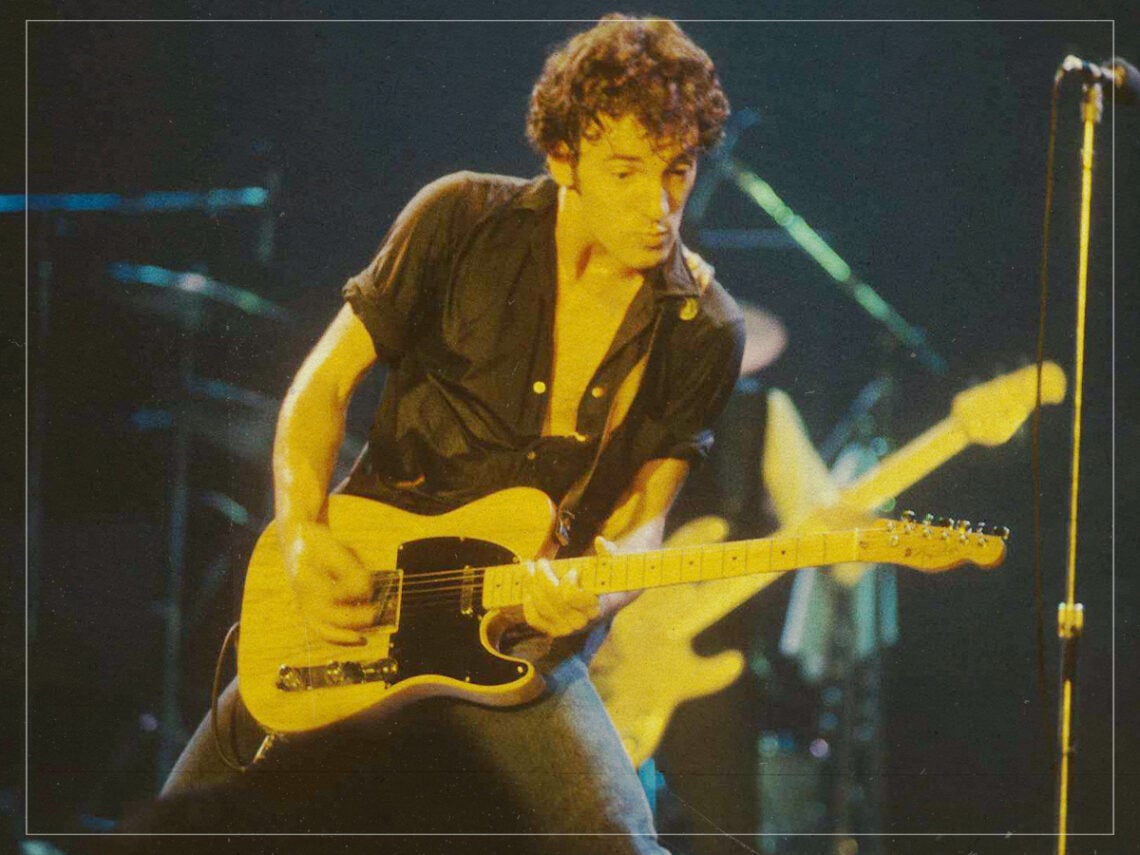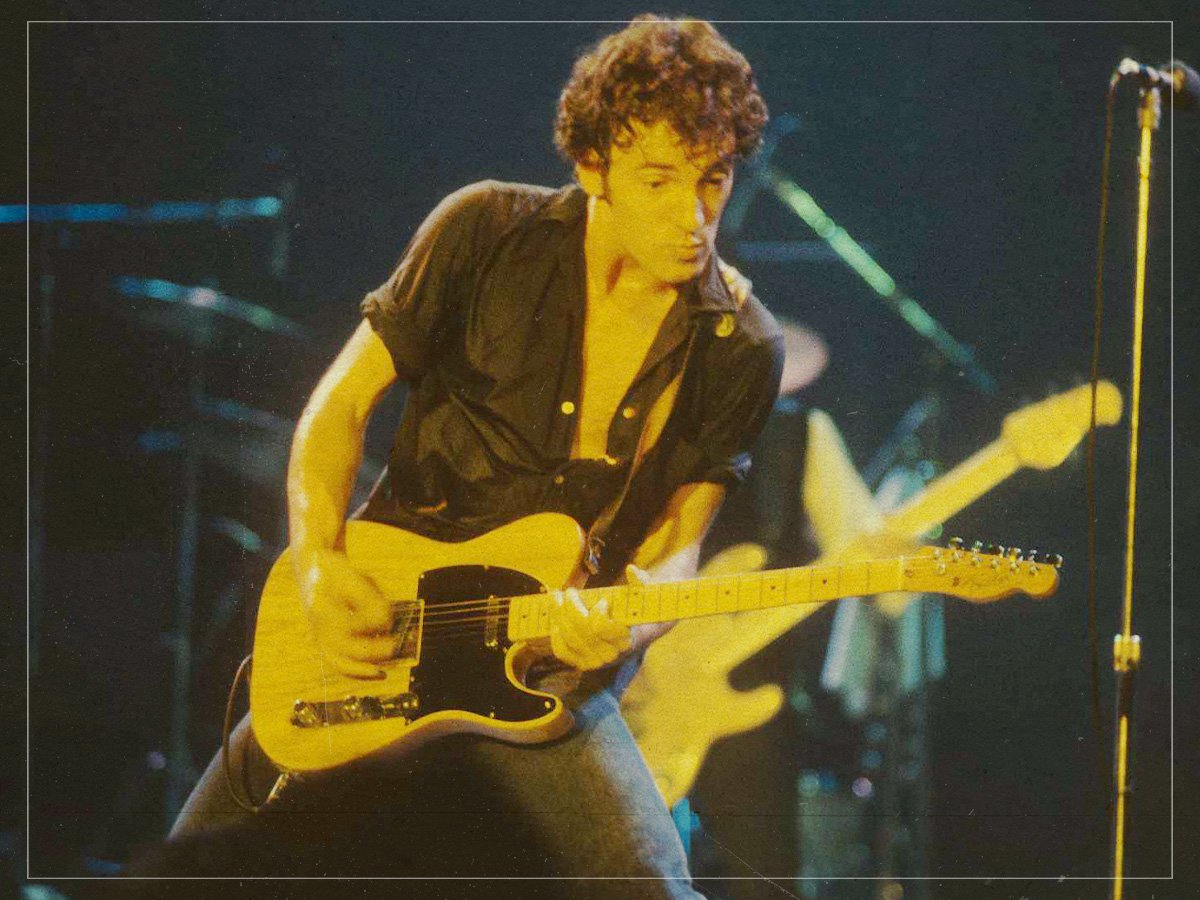
(Credits: Far Out / Carl Lender)
Any musician has a big job in front of them before they step out on that stage. It’s hard enough trying to entertain an audience in the middle of some no-name bar, but writing the perfect song for stadiums means making people relate to every single word that’s coming out of your mouth once that chorus starts. And while Bruce Springsteen has made some of the best Americana music by quoting his own heart, he was only the next in a long line of people painting the picture of the United States.
When looking at how Springsteen frames his stories, though, there’s no direct competitor to his playbook. Not many people could perfectly capture the blue-collar lifestyle like he could on Born to Run, and even when they did talk about small-town living, no one packed as much emotion into one song as he could.
Because if there’s one thing that ‘The Boss’ knew more than anyone else, it’s that there was a certain romance to life in the working class. Sure, there might not have been a lot of hope for the wounded warriors stuck in their dead-end jobs at the end of the song ‘Jungleland’, but the beauty comes from the fact that anyone can try to find some form of escape, even if they know it’s not quite in their reach.
But using music to change the world goes beyond the rock and roll that Springsteen started with. Chuck Berry helped everyone put their feelings into a guitar lick, but artists like Woody Guthrie and Pete Seeger were the ones talking about the dream of music being used to unite people. The seeds of Springsteen’s sound were there, but Bob Dylan was the one to take things to the next level.
There were already plenty of Dylan songs in his early years that referenced Guthrie’s blunt honesty whenever he sang, but when he went electric, he became a completely different artist. Whereas his first era shook people up and made everyone see the horror in the world, Dylan’s electric guitars on ‘Like A Rolling Stone’ made everyone realise that rock and roll could mean something more than the simple love songs that The Beatles had been singing.
“My intention is to do what Bob Dylan did for me, which is to kick open the door to your mind and your body and make you want to move.”
Bruce Springsteen
Rock was now a way to shape culture, and Springsteen knew that he had found a way to connect with people when he heard Dylan, saying, “My intention is to do what Bob Dylan did for me, which is to kick open the door to your mind and your body and make you want to move and think and experience and get angry and fall in love and reach for something higher than yourself and grovel around in something lower than yourself. That’s your job description, that’s what people are paying you the money for.”
And while it took Springsteen a little while to outrun the Dylan comparisons in his early days, he never intended to be a clone of what he did. Mr Zimmerman was always an enigma behind the scenes, and ‘The Boss’ was never afraid to get confessional on albums like Tunnel of Love, frail and broken on Nebraska, or ask questions to understand tragedies like 9/11 on The Rising.
Out of all the Dylan copycats from that era, Springsteen seemed to be one of the few who understood every lesson that he had to offer. Rock and roll certainly meant more than a few chords, but he knew that he had to meet his audience where he lived rather than become a rock and roll preacher.
Related Topics
Subscribe To The Far Out Newsletter
